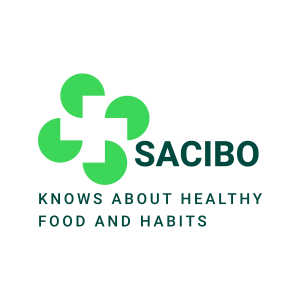- Home
- /
- Women health
- /
- Breast Cancer: prevention, identification...
- /
- Breast Cancer: Comprehension, Identification...
Breast cancer is a complex and potentially life-threatening disease that affects millions of people worldwide, predominantly women. It is the most common cancer among women, and its impact on families, communities, and society as a whole cannot be underestimated. This article aims to provide a holistic overview of breast cancer, delving into its causes, risk factors, early detection, diagnosis, various treatment options, and ongoing research efforts. By increasing awareness and knowledge about breast cancer, we can empower individuals to take proactive steps for early detection and reduce the burden of this disease.
Understanding breast cancer is not solely the domain of medical professionals; it is a collective effort involving individuals, caregivers, and communities. By increasing awareness and knowledge about breast cancer, we can foster a culture of prevention and equip individuals with the mechanisms to make informed justments about their health.
As we delve into this topic, we acknowledge the courage and strength of those who have faced this challenging journey. Their resilience serves as an inspiration as we seek to raise awareness, promote early detection, and advocate for cutting-edge research that brings us closer to a future where breast cancer becomes a disease of the past.
Comprehension Breast Cancer
What is Breast Cancer?
Breast cancer is a type of cancer that originates in the breast tissue, usually in the ducts or lobules. It occurs when cells in the breast undergo abnormal growth and start to divide uncontrollably. This uncontrolled cell growth can lead to the formation of a lump or mass known as a tumor. However, not all breast tumors are cancerous, and benign tumors do not pose a threat to health.
Types of Breast Cancer
There are some types of breast cancer, each with distinct characteristics and behaviors. Invasive ductal carcinoma (IDC) and invasive lobular carcinoma (ILC) are the most usual types, but other forms, such as triple-negative breast cancer and HER2-positive breast cancer, also exist. Understanding the different types of breast cancer is essential for developing targeted treatment approaches.
Risk Factors
What factors can affect?
Various factors can increase an individual’s risk of growing breast cancer. Some of the most significant risk factors include age, family history, genetics, hormonal factors, reproductive history, and lifestyle choices such as smoking, alcohol consumption, and physical activity levels. Understanding these risk factors can help identify high-risk individuals and implement preventive strategies.
What role of genetics
Genetic testing for breast cancer has revolutionized the field of oncology, providing valuable insights into an individual’s inherited genetic makeup. Through genetic testing, healthcare professionals can identify specific gene mutations connected with breast cancer susceptibility. The test involves analyzing a blood or saliva sample to detect the presence of mutated genes associated with breast cancer risk. By uncovering these genetic factors, doctors can devise personalized treatment plans tailored to the patient’s unique genetic profile. Moreover, genetic testing enables the identification of at-risk family members, allowing them to undergo testing and take proactive steps to manage their health proactively.
BRCA1 and BRCA2 genes
The discovery of BRCA1 and BRCA2 genes has sparked intense research into other genetic reasons linked to breast cancer development. Researchers continue to investigate other susceptibility genes and their interactions, seeking a deeper understanding of the disease’s genetic basis. Additionally, advancements in genomic technology have opened up new possibilities for identifying genetic markers that may contribute to breast cancer risk. This ongoing research holds the promise of uncovering novel therapeutic targets and refining risk assessment models, ultimately leading to improved prevention and treatment strategies for breast cancer.
Treat methods according genetics
Genetic information has also become a critical component of precision medicine in breast cancer treatment. With the rise of targeted therapies, identifying specific genetic alterations in a patient’s tumor allows oncologists to tailor treatments to match the unique characteristics of the cancer cells.
Targeted therapies aim to disrupt specific molecules or pathways that drive cancer growth, offering more effective and less toxic treatment options. As the understanding of breast cancer genetics continues to evolve, precision medicine approaches are likely to become more refined, leading to better outcomes and improved quality of life for breast cancer patients.
The Breast Cancer Prevention Strategies
While it is not always possible to prevent breast cancer entirely, certain lifestyle modifications can reduce the risk.
Regular physical activity, maintaining a healthy weight, limiting alcohol consumption, and avoiding smoking are among the lifestyle changes that may contribute to a lower risk of breast cancer.
Additionally, early detection through regular screenings is crucial for detecting breast cancer at an early, more treatable stage.
Breast cancer prevention is a critical aspect of healthcare that empowers individuals to take charge of their well-being and reduce the risk of developing this prevalent disease. While breast cancer cannot always be completely prevented, there are several proactive measures that can significantly lower the likelihood of its occurrence.
Well-balanced diet
First and foremost, maintaining a healthy lifestyle plays a vital role in breast cancer prevention. A well-balanced diet rich in fruits, vegetables, whole grains, and lean proteins provides essential nutrients and antioxidants that help protect against cancer development. Including a variety of colorful fruits and vegetables in daily meals ensures a diverse range of beneficial compounds that support overall health, including reducing the risk of breast cancer.
About principle of healthy plate read here: The Principle of the Healthy Eating Plate
Movement
Regular physical activity is another key factor in breast cancer prevention. Engaging in moderate to vigorous exercise for at least 150 minutes per week helps manage body weight, reduce fat tissue, and regulate hormone levels, all of which can influence breast cancer risk. Activities like walking, swimming, or cycling not only promote physical health but also positively impact mental well-being.
Alcohol and tobacco intake
Limiting alcohol consumption is an important step in breast cancer prevention. Studies have shown a link between alcohol intake and an increased risk of breast cancer. Reducing alcohol consumption or avoiding it altogether can have a significant impact on breast cancer risk reduction.
About affects that alcohol has on our body read here: Alcohol and Healthy Life Style: The Impact on the Body
Equally crucial is avoiding tobacco and minimizing exposure to secondhand smoke. Smoking has been linked to various cancers, including breast cancer. Quitting smoking or staying away from environments where smoking occurs can contribute to overall health and well-being while lowering the risk of breast cancer.
Screening
Regular breast cancer screening is essential for early detection, as early-stage breast cancer is more treatable and has better outcomes. Women should undergo regular clinical breast examinations by healthcare professionals and consider mammograms as recommended by their age and risk factors.
Feeding with breast
Breastfeeding can also play a role in breast cancer prevention. Studies have indicated that breastfeeding, especially for an extended period, may slightly reduce the risk of breast cancer in women.
Managing stress
Moreover, managing stress and incorporating stress-reducing practices into daily life can support breast cancer prevention. Chronic stress can weaken the immune system and potentially influence cancer development. Techniques like mindfulness meditation, yoga, or spending time in nature can help alleviate stress and promote emotional well-being.
About meditation and its influence on the body and not only read here: The Transformative Power of Meditation
Family history
Lastly, staying informed and aware of one’s family medical history is essential in understanding potential genetic risk factors. Individuals with a family history of breast cancer or specific genetic mutations connected with breast cancer should consult healthcare professionals for genetic counseling and personalized risk assessment.
In conclusion, breast cancer prevention is a holistic endeavor that involves adopting a healthy lifestyle, engaging in regular physical activity, limiting alcohol consumption, avoiding tobacco, passing permanent screening, breastfeeding, managing stress, and understanding one’s genetic risk factors. By proactively incorporating these strategies into daily life, individuals can take significant steps towards reducing their risk of breast cancer and promoting overall well-being. Breast cancer prevention is a proactive and empowering approach to safeguarding health and making a positive impact on the struggle against breast cancer.
Early Identification and Diagnosis
Breast Cancer Screening
Breast cancer screening involves using various methods to detect breast abnormalities, such as mammography, ultrasound, and MRI. Regular screening is essential for early detection, as it allows healthcare providers to identify potential issues before symptoms develop, increasing the chances of successful treatment.
Breast Self-Examination
Breast self-inspection is a simple yet effective technique that women can perform at home to identify any unusual changes in their breasts. By becoming familiar with the normal look and feel of their breasts, individuals can detect any abnormalities promptly and seek medical attention.
Clinical Breast Examination
Clinical breast examination, conducted by a healthcare professional, involves a thorough examination of the breasts and surrounding areas for any signs of abnormalities. It complements other screening methods and can be an essential component of early detection.
Diagnostic Procedures
If an abnormality is detected during screening or self-examination, further diagnostic procedures, such as breast biopsy, may be necessary to confirm the presence of cancer and determine its characteristics. These procedures are crucial for accurately diagnosing breast cancer and tailoring treatment plans accordingly.
Breast Cancer Staging
Staging is a critical process that helps determine the extent and severity of breast cancer. The stage of breast cancer is based on factors like the size of the tumor, lymph node involvement, and whether the cancer has spread to other parts of the body. Accurate staging plays a vital role in guiding treatment decisions and predicting the prognosis.
The Treatment Options
Surgery
Surgery is a common treatment for breast cancer and involves the removal of the tumor and, in some cases, nearby lymph nodes. The different surgical options include lumpectomy, mastectomy, and lymph node dissection. Advances in surgical techniques have improved outcomes and reduced the physical and emotional impact of surgery.
Radiation Therapy
Radiation therapy utilizes high-energy rays to target and destroy cancer cells. It is often used after surgery to eliminate any remaining cancer cells or as a primary treatment for certain cases. Radiation therapy has become more precise over the years, leading to better treatment outcomes and reduced side effects.
Chemotherapy
Chemotherapy uses powerful medicines to kill cancer cells or stop their growth. It can be administered before or after surgery, depending on the case. While chemotherapy may cause side effects, medical advancements have allowed for better management of these effects, improving patients’ quality of life during therapy.
Hormone Therapy
Hormone therapy is primarily used for hormone receptor-positive breast cancers. It works by blocking the effects of hormones that fuel cancer growth or by suppressing hormone production. Hormone therapy has proven to be highly effective and is often used in combination with other treatments.
Targeted Therapy
Addressed therapy involves using drugs that specifically target certain molecules involved in cancer growth. It is particularly useful for HER2-positive breast cancers and has shown promising results in improving treatment outcomes.
Living with Breast Cancer
A breast cancer identification can be emotionally overwhelming, affecting patients and their loved ones. Coping strategies and support systems are crucial for navigating the challenges that accompany the journey of breast cancer therapy and recovery.
Various treat for breast cancer can lead to side effects, ranging from physical symptoms like fatigue and nausea to emotional challenges such as anxiety and depression. Understanding and managing these side effects are essential for maintaining overall well-being during treatment.
The Recommendations of psychologists
Psychologists play a crucial role in providing support and guidance to individuals facing a breast cancer diagnosis and its emotional impact. While each person’s experience is unique, psychologists may offer the following recommendations to help individuals cope with the challenges of breast cancer:
Emotional Support
Psychologists encourage patients to express their emotions openly and honestly. Dealing with a breast cancer diagnosis can evoke a range of emotions, including fear, anxiety, sadness, and anger. Acknowledging and discussing these feelings with a professional can provide emotional relief and help individuals process their thoughts.
Building Coping Strategies
Psychologists work with patients to develop effective coping strategies to manage stress and uncertainty. Techniques such as mindfulness meditation, deep breathing exercises, and cognitive-behavioral therapy (CBT) can help individuals navigate the emotional roller coaster of a breast cancer journey.
Education and Information
Providing accurate and comprehensive information about breast cancer, treatment options, and potential side effects helps patients make informed decisions about their health. Understanding the disease and its treatment can empower patients to take an active role in their care.
Support Groups
Psychologists may recommend joining breast cancer support groups, where patients can connect with others who have similar experiences. Participating in support groups allows individuals to share their feelings, gain insights from others, and receive encouragement from people who have faced similar challenges.
Family Involvement
Involving family members in therapy or counseling sessions can strengthen support networks and foster better communication. Family support is crucial during a breast cancer journey, and psychologists can help facilitate open dialogue among family members.
Setting Realistic Expectations
Coping with breast cancer often involves setting realistic expectations regarding treatment outcomes and recovery.
Overall, psychologists provide compassionate and empathetic care, tailoring their approach to the individual needs of each patient. They aim to support breast cancer patients and survivors in facing the emotional challenges that come with a breast cancer diagnosis, fostering resilience and emotional well-being throughout the journey.
Ongoing Research and Future Directions
Immunotherapy
Immunotherapy is an innovative treatment approach that aims to harness the body’s immune system to identify and strock cancer cells. In recent years, research in immunotherapy for breast cancer has shown promising results, offering new hope for patients with advanced or treatment-resistant breast cancer.
Precision Medicine
Precision medicine is a personalized approach to cancer treatment that takes into consideration an individual’s genetic makeup, lifestyle, and tumor characteristics. This emerging field holds tremendous potential for tailoring treatment plans and achieving better results for breast cancer patients.
Breast cancer continues to be a significant public health concern, affecting millions of lives worldwide. Understanding the risk factors, early detection methods, and various treatment options is crucial for improving outcomes and enhancing the quality of life for those detected with breast cancer. With ongoing research and advancements in medical technology, we are moving closer to a future where breast cancer is more controllable and, ultimately, preventable. By promoting awareness, early detection, and innovative research, we can work towards a world where breast cancer no longer poses such a substantial threat to women’s health and well-being.
Power of prevention
Breast cancer prevention is not a distant hope but a tangible reality that lies within our grasp. Through the integration of healthy lifestyle choices, regular screenings, and an understanding of genetic risk factors, we can actively shape our destinies and reduce the burden of breast cancer. Each proactive step we take towards prevention represents a powerful act of empowerment, a testament to the strength of the human spirit in the face of adversity.
The journey of breast cancer prevention is not one to be undertaken alone. It requires the collaboration of individuals, healthcare professionals, researchers, and communities, all working together to raise awareness and promote preventive measures. By fostering a culture of awareness and education, we can empower women with the knowledge to make informed decisions about their health and take proactive steps towards reducing their risk of breast cancer.
Let us not underestimate the power of prevention, for it is through our collective efforts that we can turn the tide against breast cancer. As we walk this path together, we must continue to support research and innovation, seeking new insights and breakthroughs that will further enhance our arsenal against this disease.
Empowered future
In the pursuit of breast cancer prevention, we honor the strength and resilience of those who have faced this challenge, and we stand united in the commitment to create a world where breast cancer is no longer a looming threat. With determination, compassion, and unwavering hope, we can transform breast cancer prevention from a possibility into a reality, paving the way for a healthier, more empowered future for generations to come. Together, we can unlock the path to empowerment and reshape the narrative of breast cancer, guided by the steadfast belief that prevention is not just a choice but a testament to the indomitable spirit of humanity.
































































0 Comments